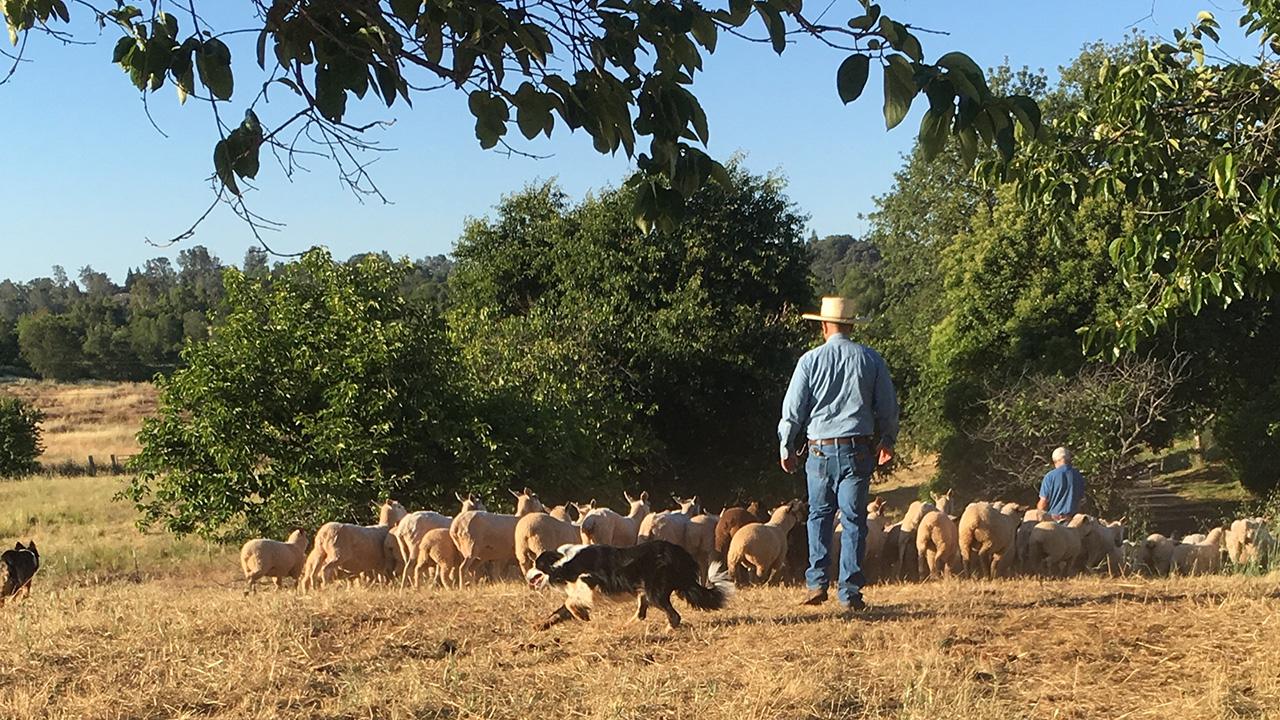
California producers: Climate change is real. We could use a little help.
Surveys point to pathways to support farmers, ranchers
How can farmers and ranchers continue to grow our food while facing challenges of a changing climate, increasingly scarce water, land use pressures and rising costs? More than a decade of research is revealing important ways universities, government agencies and other support organizations can help our food producers develop resilience to these challenges and remain profitable.
Leslie Roche is a professor of Cooperative Extension, based in the UC Davis Department of Plant Sciences. She helps lead a statewide team, including other University of California scientists and UC Agricultural and Natural Resource specialists, that is using surveys and interviews with people in the state’s agricultural sector to learn what folks need to stay strong.
Researchers aim for their results to shape the state’s education and extension efforts in the near future. With the largest farming economy in the United States, California’s efforts to help producers has national implications.
How to help our food producers?
Despite their confidence and resourcefulness, both ranchers and farmers reported wanting more help from government agencies, such as crop insurance and programs to protect their farms. Some producers surveyed didn’t even know that disaster assistance is available,
What they said about their needs:
- Producers want more information about how to adapt to climate change, tools such as weather stations to help them make decisions, and to learn new skills to help them deal with challenges in their operations.
- Computer-based tools that let producers gather data, look at their risks and possibilities, and make decisions about complex problems will help them keep their operations viable.
- Science-based solutions that are offered must be tailored to the conditions individual producers face, mesh with the strategies they already prefer and be cost-effective. Otherwise, producers are unlikely to adopt them.
The statewide team’s work is getting noticed, Roche said: Material from one of the rancher focus groups will be presented at the 2025 annual conference of the Association of International Agricultural and Extension Education.
Farmers: Climate change can affect operations
A survey of 341 California farmers “showed that most believe climate change is real, and many think action is needed,” according to a paper led by Samuel Ikendi, a Roche colleague based at UC Merced. “Farmers are especially worried about how climate change affects water, temperatures, and natural disasters,” Ikendi wrote.
Farmers wanted more information on how to adapt and to learn how to use online tools to better understand climate information.
They’re already taking action: More than half of those surveyed (54 percent) are changing their irrigation practices, for example.
Protecting and improving the soil is an important course of action:
- About 48 percent are reducing their disturbance of the soil or adopting no-till cultivation practices.
- Nearly 47 percent are building up organic matter in the soil and/or applying amendments such as manure and compost.
- Nearly 40 percent are using mulch on their crops.
Ranchers: “We can do this!”
Ranchers have confidence in their abilities to get through these tough times, relying on hard experience and drawing on trusted relationships in their communities, according to a paper by Roche and colleagues. That research served as the basis for much of what has been published.
Related links
Read more about the surveys and interviews conducted by Roche and the statewide team:
The Roche team plans to help ranchers stay strong despite drought by creating programs that draw on the respondents’ own hard-won wisdom.
Surveys also offer insights into the toll that wildfire takes on producers’ physical and mental health, and suggests avenues for supporting their ability to adapt.
Climate-smart agricultural practices can help farmers adapt as temperatures warm.
Media Resources
- Trina Kleist, UC Davis Department of Plant Sciences, tkleist@ucdavis.edu, (530) 754-6148 or (530) 601-6846
